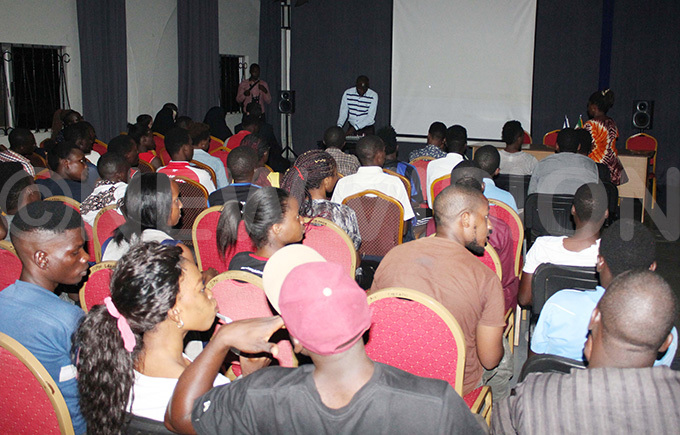Iranian film festival discusses Ugandan film growth
Feb 21, 2018
In its fifth edition, the annual festival that took place over the weekend at Kampala Film School, Kampala University, screened three Iranian films, which portrayed the Iranian culture.

The Ugandan film industry is steadily growing, with visible great improvements in the production. For instance, the prolific picture or cinematography of recent locally produced films is quite promising.
But where is the problem? Why can't the industry compete with its counterparts in other countries, at least, on the continent? That was the topic of discussion at the Iranian Film Festival 2018.
In its fifth edition, the annual festival that took place over the weekend at Kampala Film School, Kampala University, screened three Iranian films, which portrayed the Iranian culture.
However, it was the lessons local film makers would pick from these Iranian films that became the highlight of the two-day event organized by the Cultural Counsel of the Embassy of the Islamic republic of Iran.
Iran boosts of a film industry that produces a variety of commercial films annually and has a substantial footing in great story telling.

In a panel discussion on the growth of local film industry on the second day, Godfrey Musinguzi, the proprietor of Uganda Cinema Night, a monthly local film showcase, mentioned storytelling and marketing as major tasks still challenging local film makers.
"We have interesting stories on script. But the challenge has been in transforming the story from script to screen, and that is where we should now focus our energy," Musinguzi told an audience comprised of majority film students.
The panel which included his excellence the consulate of the cultural counsel of the embassy of Islamic Republic of Iran, Ali Bakhtiari, and an Italian film maker, Cristiano Civitillo, also discussed the role of film in shaping society's perception, citing an example of how western countries have marketed themselves through film.
Bakhtiari, thus, encouraged film makers to tell their own stories—the Ugandan stories, before one comes from outside to tell them, explaining that no one outside understands the Ugandan story than themselves.
The films screened were, namely; Body Guard, Where Are My shoes and A Cube of Sugar.
